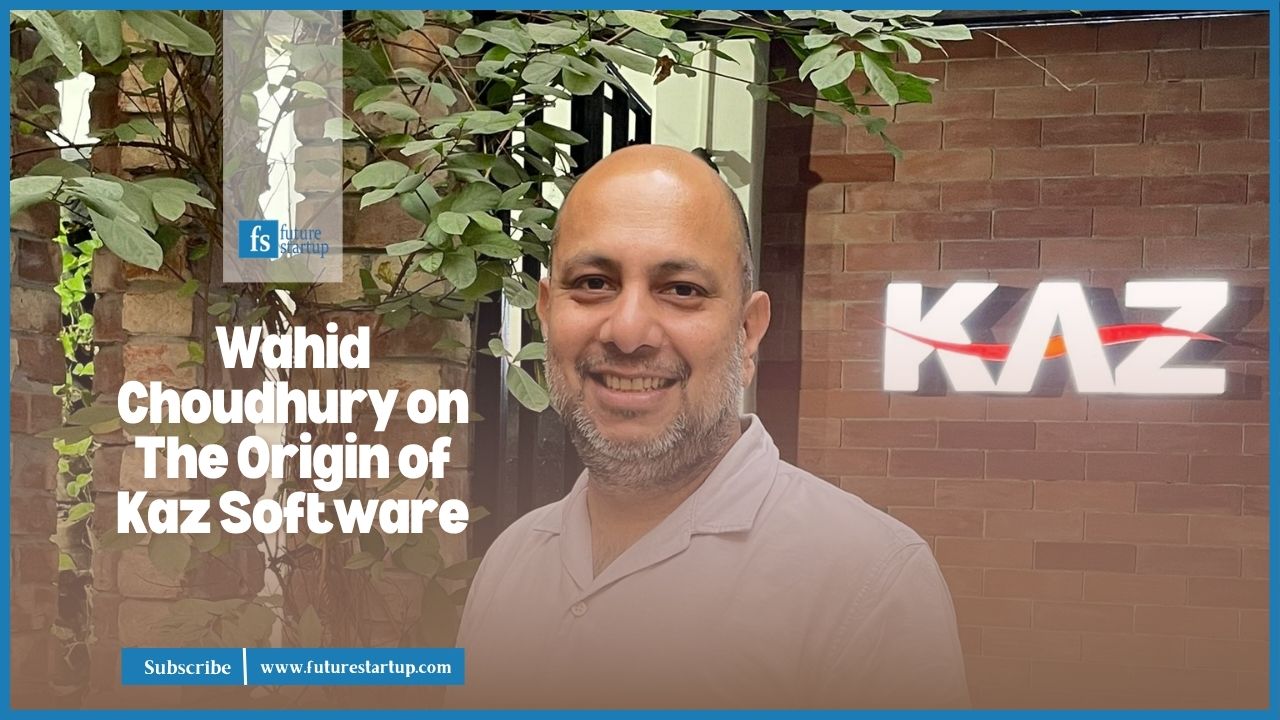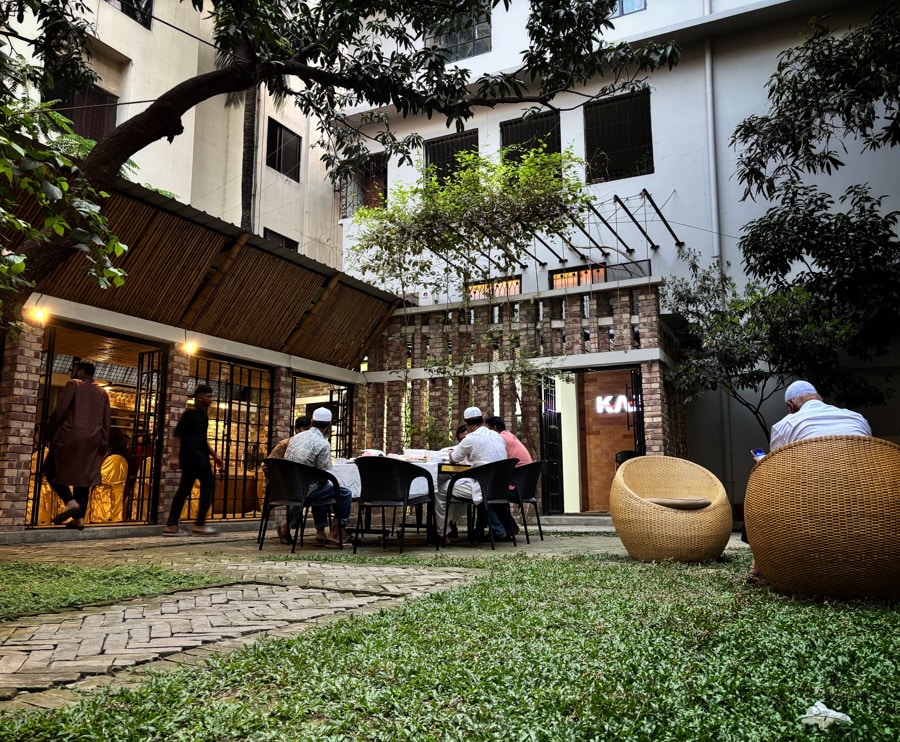
Kaz Software, founded by Wahid Choudhury in 2004, grew from a six-month consulting project into one of Bangladesh's leading software companies. Learn the unconventional origin story of how Kaz Software was built without grand ambitions, just steady evolution.
One of the common errors we make when it comes to understanding entrepreneurship and venture building is that we try to rationalize a process which is emergent and organic in nature. An emergent phenomenon is something that follows an unpredictable process that you can’t explain logically.
To understand an emergent phenomenon you have to understand the fact that a complex system has many different components and drivers that can’t be understood by understanding the trajectory of one single component of the system.
In my reading, entrepreneurship is an emergent phenomenon that is hard to explain. While we can get an intuitive understanding of how venture building works that can be useful, in order to make this understanding helpful we have to accept the fact that what we have is a map and territory will always come with more nuances and details that the map can’t contain.
I have written about this reality of venture building in my essay The Life Cycle of Every Startup Idea:
“When we try to start a business or come up with an idea, we usually want to start with a complete/fully formed idea. We want to think through an idea, see ahead, and understand how it will unfold over the years. We make five-year, ten-year plans. We design long-term strategies and plan expansion moves. We try to explain in great detail what will happen after what.
Coming up with something supposedly half-baked or not thought through is often viewed negatively. Investors want to know our thoughts about the long term. Our partners want to know what we exactly want to achieve five years from now.
This need to have a fully formed idea before we can start something makes it difficult to begin and discourages starting anything new. Consequently, we forego plans and give up on ideas, and we remain stuck because nothing happens when we don’t begin. We assume if we start without knowing what will happen down the line, we will be in great uncertainty and danger.
As Poet and writer John O'Donohue writes in his inimitable voice: “Beginnings often frighten us because they seem like lonely voyages into the unknown. Yet, in truth, no beginning is empty or isolated. We seem to think that beginning is setting out from a lonely point along some line of direction into the unknown. This is not the case. Shelter and energy come alive when a beginning is embraced. Goethe says that once the commitment is made, destiny conspires with us to support and realize it. We are never as alone in our beginnings as it might seem at the time. A beginning is ultimately an invitation to open toward the gifts and growth that are stored up for us. To refuse to begin can be an act of great self-neglect.”
We struggle to begin because we demand completeness from us even before beginning so that we don’t feel the weight of uncertainty. The thing we overlook is that no idea begins in completeness. More importantly, no idea survives a first confrontation with reality. Thus, every idea requires evolution. We learn the way as we take the path. We figure out the journey as we go through it.
The point is, if you have an idea and if you think your idea needs to mature before you go and do something with it, you are wrong. Start with whatever you have and wherever you are.”
This is exactly the case with the company we are discussing today: Kaz Software. Founded by Wahid Choudhury in 2004, Kaz is considered as one of the most important and influential software services companies in Bangladesh that has played an important role in building the software industry in Bangladesh.
In this fascinating short video, taken from our brilliant conversation with Kaz Founder and CEO Wahid Choudhury, Mr. Choudhury talks about how Kaz was founded. The story validates the point that building companies is a messy affair and we should operate with that understanding in mind when you are thinking about building companies.
Ruhul Kader: You started working part-time at this company in 1998 and became full-time in 1999. You briefly touched upon how your experience working there influenced you in your later entrepreneurial life when you started your company. Can we track your journey from there to starting Kaz? When did you first think about starting your own company? What were you exactly thinking? What was the thesis and ambition? What did you want to do? In 2004, when you started Kaz, software engineering was not a mainstream thing in Bangladesh yet. These were very early days of the software industry. I would say you played a pioneering role in the industry, building the market. You had to take the risk of building a new market. Tell us more about your thought process and the story of starting Kaz but start from your time at that London company.
Wahid Choudhury: Before answering your question, let me give you a warning. You are used to speaking with very driven startup founders. They want to be the Elon Musk and Jeff Bezos of the world. People who know me, if you ask around, the biggest complaint about me is that "bhai, you have no ambition." Life to me kind of flows and I just flow with it. You wouldn't find that spark in me if you want to compare me with typical founders. For most people who worked with me, their biggest regret is—" Wahid Bhai, you could have done much better if you just had a little more ambition in life." You've heard this about me. It is a stigma about me.
I think the admission test that I failed in my childhood and thus couldn't get into school, permanently affected me (laughs). I realized that I wouldn't go anywhere in life, rather it would take me somewhere. It's actually a problem with my drive.
I’m driven actually but not for the obvious things. Money should be a good driver. But it never drives me. I always feel that it comes in the process. I’m driven by creative ambition.
For example, recently we decided to make what we call a cafe, but basically a lunch space in the office. After talking to an architect, I saw that the quality I want will not be within my budget. And what the architect within my budget will build, I don't want it. So I studied a bit myself—mainly Googled—and designed it myself. It turned out beautiful, in my opinion. But the energy I put into that, many people said, "Bhai, if you put this energy into business development, it would be good." Everyone has issues—this is mine. I'm giving you a warning beforehand.
Anyway, since we have limited time, I would try to do a quick recap of how I came to Kaz: In 2002, I left that company in London and came back to the country.
There was a strong reason—my father and mother were alone and they were quite old, and my siblings live abroad. I felt that at least one of us should be with my parents. That was one of the big reasons. Another reason was I like Bangladesh. I have always liked Bangladesh. I enjoyed my time in the country. That was also another big reason. I wasn't thinking too much about the career, I just decided to jump.
There were arguments again, similar to jumping from the PhD. My wife didn't like this at all. I got married in 2002, by the way, while I was at that company. I had to fight a bit with her about the decision to return. Those who are with me kind of tolerate this madness that I would make these sudden jerky motions in life. My wife, being with me and knowing me for a long time—we dated for a long time—kind of knew what she was getting into.
That’s how I came back to Bangladesh. After coming back, I had to get a job, obviously. One of our senior brothers from physics has a company, BdCom, which is an ISP. They're the third oldest ISP in Bangladesh. Sumon Bhai—Sumon Ahmed Sabbir—is a bit senior to us from our department, and he had employed a few others from our department. I don't know whether you know him but he is very famous. They were forming a software wing, I was hired as a Senior Software Engineer in that wing. I was a C++ programmer. It was very interesting work—interfacing hardware with VoIP switches. Usually, a software developer doesn't get such an opportunity, but I had that chance. It was an interesting opportunity for me to solve some very interesting problems.
That was in 2002. I was unemployed for a while in between. Then in 2003, since I lived abroad, a foreign colleague connected me with another company. They needed consulting help, so I went abroad for that project. That's how I got the idea of consulting. The pay in the software industry wasn't that good then, so I thought to augment my salary through consulting. Since BdCom was like my older brother's company, I would tell them I needed unpaid leave to do consulting.
After doing a couple of consulting projects, I got a good opportunity in Belgium where I stayed for three months. After doing some more consulting projects like this, I got a consulting project with a Silicon Valley-based company that lasted quite long and went from consulting to a job offer. They would give me a H1 visa and I would move to the USA. But I said I had come back from England to stay in the country for these reasons. The story has not changed and I want to stay in the country. I suggested to them that why don't I form a company, hire a team around me, and do their work from Bangladesh.
That's how Kaz started in June 2004. It was a quite safe entry into this because we had a project. It was not like I was risking a lot of things, we had a project which was for six months. There was a chance that after six months I wouldn't have work but I knew that in the software world, you could always find work. So that's how Kaz started.
Then luckily enough we managed to do good work and that company grew and we continued to have more work. From there, their data partner became our client. They are still our client and have been since 2005. They are now our oldest client. Then their CTO left and formed another company and he started sending us work. This is how we have grown.

Read the full interview of Wahid Choudhury here.
